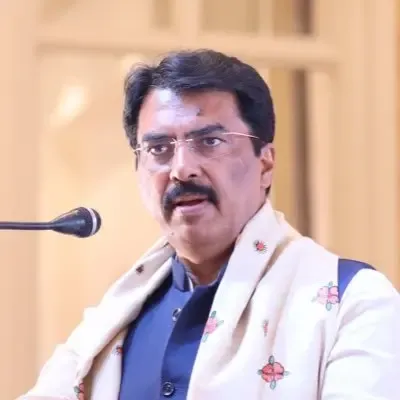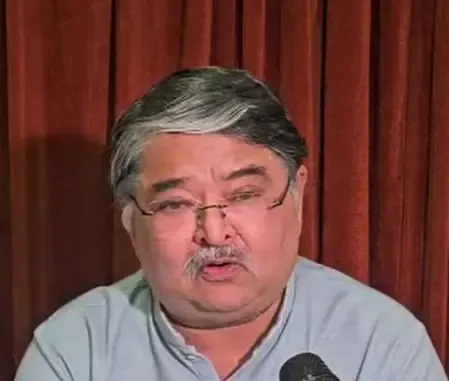Bihar Minister Enforces Strict Measures Against Ineffective Officials

Synopsis
Key Takeaways
- Strict actions against underperforming officials.
- High rejection rates in mutation applications under investigation.
- Applicants must provide their own mobile numbers.
- Highlighting zones with the highest and lowest rejection rates.
- Emphasis on accountability for officials and streamlining processes.
Patna, April 2 (NationPress) Bihar's Minister for Revenue and Land Reforms, Sanjay Saraogi, has mandated stringent actions against officials who are underperforming in revenue-related tasks, especially in mutation cases.
He indicated that the officials with the poorest performance in mutation cases will be subjected to disciplinary measures.
“We will scrutinize the high rejection rates of mutation applications within the department, and those officers who are not meeting performance expectations will face penalties. Furthermore, we have instructed applicants to provide their personal mobile numbers to prevent misuse at CSC centers or cyber cafes,” he stated.
The minister convened a high-level meeting with the Additional Chief Secretary and the Secretary of the Revenue and Land Reform Department on Wednesday.
Post-meeting, he disseminated the directives to the officials.
He noted that the zones with the highest rejection rates include Piparia in Lakhisarai at 65.12%, followed by Jaale in Darbhanga at 62.96%, Agiaon in Bhojpur at 55.21%, Thakurganj in Kishanganj at 55.15%, and Modganj in Jehanabad at 53.91%.
A comprehensive list was also shared, highlighting zones from Araria, Madhubani, Khagaria, and Darbhanga districts. He highlighted the most efficient revenue zones with the least rejections.
Leading the list, Nuaon block in Kaimur district has a mere 6.74% rejection rate, followed by Ekangarsarai in Nalanda with 7.44%, Halsi in Lakhisarai at 8.93%, Mohaniya in Kaimur at 9.24%, and Muraul in Muzaffarpur at 9.54%.
Other high-performing zones include Purnea, Sitamarhi, Vaishali, and Lakhisarai. Minister Saraogi underscored that minor mistakes should not lead to unnecessary rejection of mutation applications.
“Excessive rejection rates impede revenue operations and create difficulties for applicants. We have advised applicants to ensure their own mobile number is used in the application rather than that of a cyber cafe or CSC center operator. This will help prevent fraud and the misuse of applicants' documents,” Saraogi mentioned.
“We will hold underperforming officials accountable for the high rejection rates. Our goal is to streamline the mutation process for improved efficiency. We have also directed senior officials to regularly monitor rejection rates across all regions,” he concluded.









